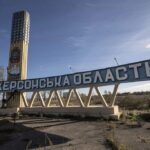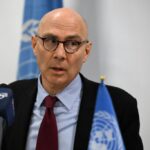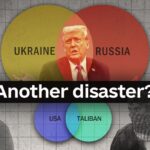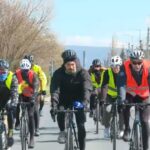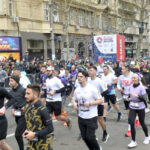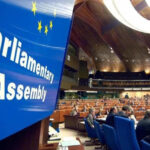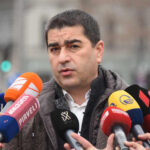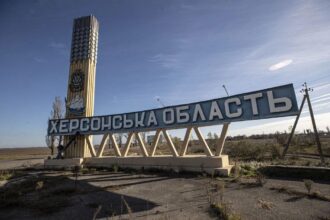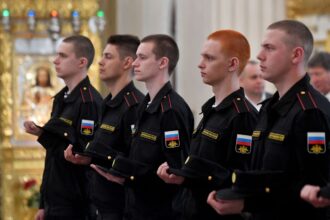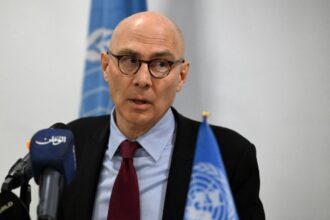The following statement by the World Health Organization (WHO), touches on the ongoing mental illness crisis in Israel after the October 2023 terrorist attacks and the support that is being provided to those most in need.
The mental health crisis that was triggered by those atrocities is a major concern as the one-year anniversary of the attacks led by Hamas in October 2023 passes.
Frontline responders such as ambulance drivers and hospital staff who were the first to arrive at the scene of the attack or receive the injured, saw the carnage first-hand. Other people who helped identify bodies and prepare the dead for burial were also deeply affected by what they witnessed.
Mashiv Ha’Ruach, which translates to “Bringing back spirit”, provides mental health and psychosocial assistance for frontline workers in response to this collective trauma. The workshop retreats of Mashiv Ha’Ruach, which are supported by WHO/Europe offer a safe environment for participants to process and discuss their experiences and develop resilience and coping strategies that will enable them to face the next day and support other frontline employees.
Helping the helpers
Eyal Kravitz was one of many people who watched videos of responders in difficult situations. “I felt that first responders and caregivers would require assistance. So I decided to create a group of civilians to support. He worked with cofounder Daniel Chermon to develop a plan.
Chermon recalls, “So many people came forward in the days following the attacks to help, and we thought, who is supporting the helpers?”
Vered Atzmon Mehulam is another co-founder of Mashiv Ha’Ruach and the Professional Director. She volunteered to be a psychologist in the immediate aftermath of the attacks on October 7, helping families identify the bodies of their loved one.
This profound and difficult experience brought her in contact with the volunteers who helped search and recover the victims. They were among the first people to arrive at the scene of the attacks. They were deeply affected by the experience, and insomnia, depression, anxiety, and post-traumatic disorder increased. This had a ripple affect on their families and workplaces. In the chaos that followed, no organization was there to help them through the ordeal.
Mashiv Ha’Ruach filled this gap by delivering a series of workshops developed By Atzmon Meshulam. The workshops are part of a desert retreat, away from the distractions and noise of everyday life. Group sessions enable participants to share experiences and create a strong network of support that lasts long after the retreat.
“One of the symptoms that people experience when they are traumatized is a feeling of isolation from others.” Atzmon Mehulam says that they feel no one can understand what happened.
The organization has worked with many groups, including the wives of injured soldiers and the medical staff of Soroka Medical Center who treated many of the victims.
Trauma and healing together
The attacks of October 7 left Israelis deeply scarred, and terrified. Many Israelis found it difficult to move forward in their lives, regain a sense normalcy and security.
In the first months following the attacks, many volunteers did not want to or were not able to talk about what they saw.
Chermon says that at first, people didn’t think they needed to share their experiences. “It was difficult to convince people to come at first, but after they arrived, their colleagues began to tell us about the value of retreats.”
Language to express feelings and share experiences
Oz Tal has been volunteering with a nongovernmental organisation (NGO) that is dedicated to search-and-recovery operations for many, many years. He responded to the attacks and even came under fire when he tried to retrieve bodies at the Nova Festival.
He says that the workshops helped him find a way to express and describe his feelings. Sharing his experiences with others also allowed him to process and overcome his trauma. He encourages his co-workers to attend a retreat.
“First, I’ve found that most of the volunteers are fine when I tell them to attend the retreat. They don’t have anything. They don’t want you to come. After we have talked about our feelings and shared our problems, the first person starts talking. Then the rest of the group. You cannot imagine the atmosphere in the room at that moment.”
The workshops include activities that are designed to help participants make meaning of their traumatic experience, find coping mechanisms and, in essence, a language for speaking about what they’ve been through.
Atzmon Meshulam says that the therapists work with the volunteers to find the meaning of their story, because it is a real story. “You can’t alter the horrors in your story, but you can change how you talk to yourself about it.”
She says that after the retreat, participants have become calmer. “I received a note from the wife of one of the volunteers who attended the workshops. She wrote me to say that she got a new husband back, and that it was the first night he slept through since October 7.
The organization now offers retreats to partners of affected staff members and volunteers in order to build a larger network of resilience and skills.
Hodaya Leshem is a mother of four, who attended a retreat. She is married to a wounded soldier. “I didn’t have any support before I went to the meetings. I had to bring everyone in my family and community together but there was nobody there to hold me.
Building resilience
The hospital that received the majority of the wounded on 7 October was Soroka Medical Center located 40 km from Gaza. The emergency department treated 680 patients in the first 16-hour period, including 120 critically wounded.
Two retired nurses and two physicians were among the victims. Many of Soroka’s staff members lost close relatives, or lived in the area that was attacked.
Dr. Dan Schwarzfuchs knew he needed to find a way for his staff to share their experiences.
He says, “They are strong.” You wouldn’t be able to survive in this profession if you weren’t. This was a unique experience that touched every aspect of the lives of the people involved. “I knew in my gut that I had to find a way to help them remain resilient.”
“Every staff member has their own story,” he continued. “The therapy makes the staff stronger and we are all closer because of this experience.” Colleagues who previously didn’t want others to know about their experiences, are now more open because of the experiences they have heard. “People I never thought would attend are now attending.”
Ayelet is the head of the Community Department at the Kibbutz Movement. She was a close supporter of the families of kibbutz residents in the days and weeks following the attacks. Many of them had lost family members and had to evacuate.
“This was the very first time we responders were able to express ourselves. “Our energy was always directed outwards, to help others and to be there,” she says. “I felt re-energized in the retreat because the focus was on my needs and me. It was a place where I could express my feelings and someone was listening to me. It was a safe place for me to be myself. “This was refreshing and rejuvenating.”
One year on: Taking stock
Mashiv Ha’Ruach, a Jewish retreat center founded in January 2024, has helped almost 1,000 people since then.
“Each participant is there for others, not just themselves,” says Kravitz. “They become ambassadors, supporting 30 to 40 people in their workplaces or communities,” says Kravitz.
Dr. Schwarzfuchs is scheduled to be at Soroka Medical Center on the first anniversary of October 7. “I considered staying home to reflect on my own memories, but I knew that some of the patients we treated that day would return to try and psychologically close the circle. I will go to be there for both them and my staff.”
He believes that after a year, people are more willing to talk about their experiences.
“At first, people must fight or fly. You want to control yourself. “But I feel that as time passes, more people want to talk.”
Chermon acknowledges that Mashiv Ha’Ruach was not started in good circumstances. But the fact remains that people will need it for many years to come.
Kravitz continued: “The WHO’s support has been crucial in enabling us reach more individuals and group in need. We are proud that we are the only resilience initiative to receive WHO recognition in Israel, thanks to the recommendation of Israel’s Ministry of Health. This partnership has been invaluable and I would like to express our gratitude for WHO.”
WHO’s mandate is support health providers and civils in need, regardless of who or where they are. Along with support for Mashiv Ha’Ruach and the Israeli NGO Mosaica, WHO has supported an initiative that leverages religious leaders from both Jewish communities and Muslim Communities to connect people to critical mental health support. This will increase the uptake of services and reduce the stigma associated with seeking help.
Read More @ georgiatoday.ge
